Pickles are one of the most popular snacks, and many people keep them in their kitchens because they taste good, are good for you, and last a long time. However, many still need clarification on how to store them and if you should keep them in the fridge.
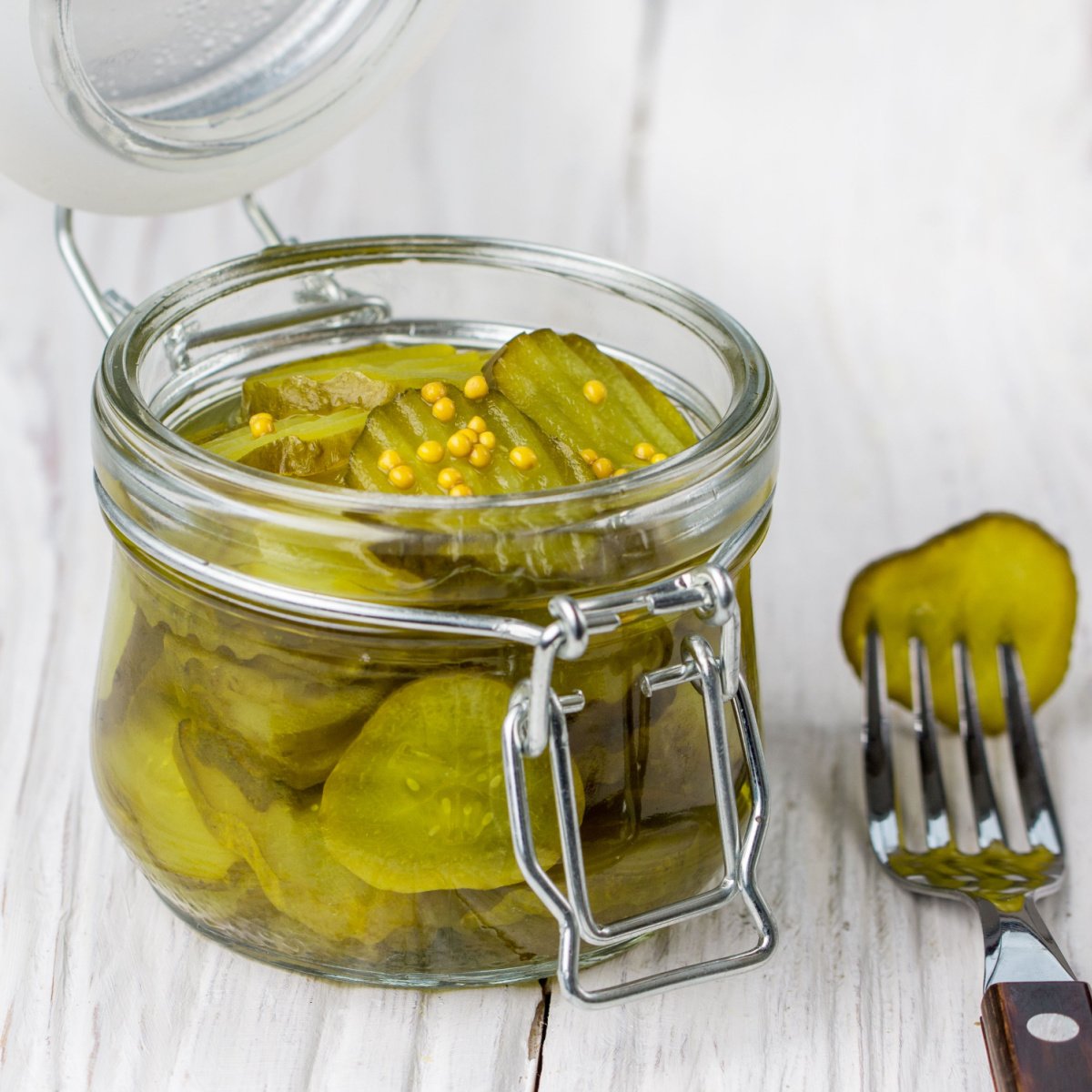
While opened pickles last up to three months at room temperature, you can extend their shelf life up to two years by storing them in the fridge. Putting pickles in the fridge will also keep their quality, so they will always taste like they were just made.
Read on to learn everything about pickle storage.
Table of Contents
What Are Pickles?
Pickles are a type of food that has been around for centuries. Pickles come in many varieties, including dill pickles, sweet pickles, and sour pickles. People have them as a snack or side dish, but you can also use them in recipes to add flavor.
Pickles are a tasty snack and a great way to get probiotics, which improve the health of our digestive systems. They are low in calories and contain zero fat.
Pickles are also full of antioxidants and important vitamins like vitamins A, C, and K.
Do Pickles Need To Be Refrigerated?
Yes, you need to keep pickles in the fridge after you open them so they stay fresh and safe to eat. While you can safely store unopened pickles in the pantry, you need to refrigerate them once they've been opened.
Pickles undergo a process called pickling, which preserves food in a salty brine solution. Refrigeration helps inhibit the growth of bacteria and other microorganisms, but it is not enough to keep the pickles safe for an extended period.
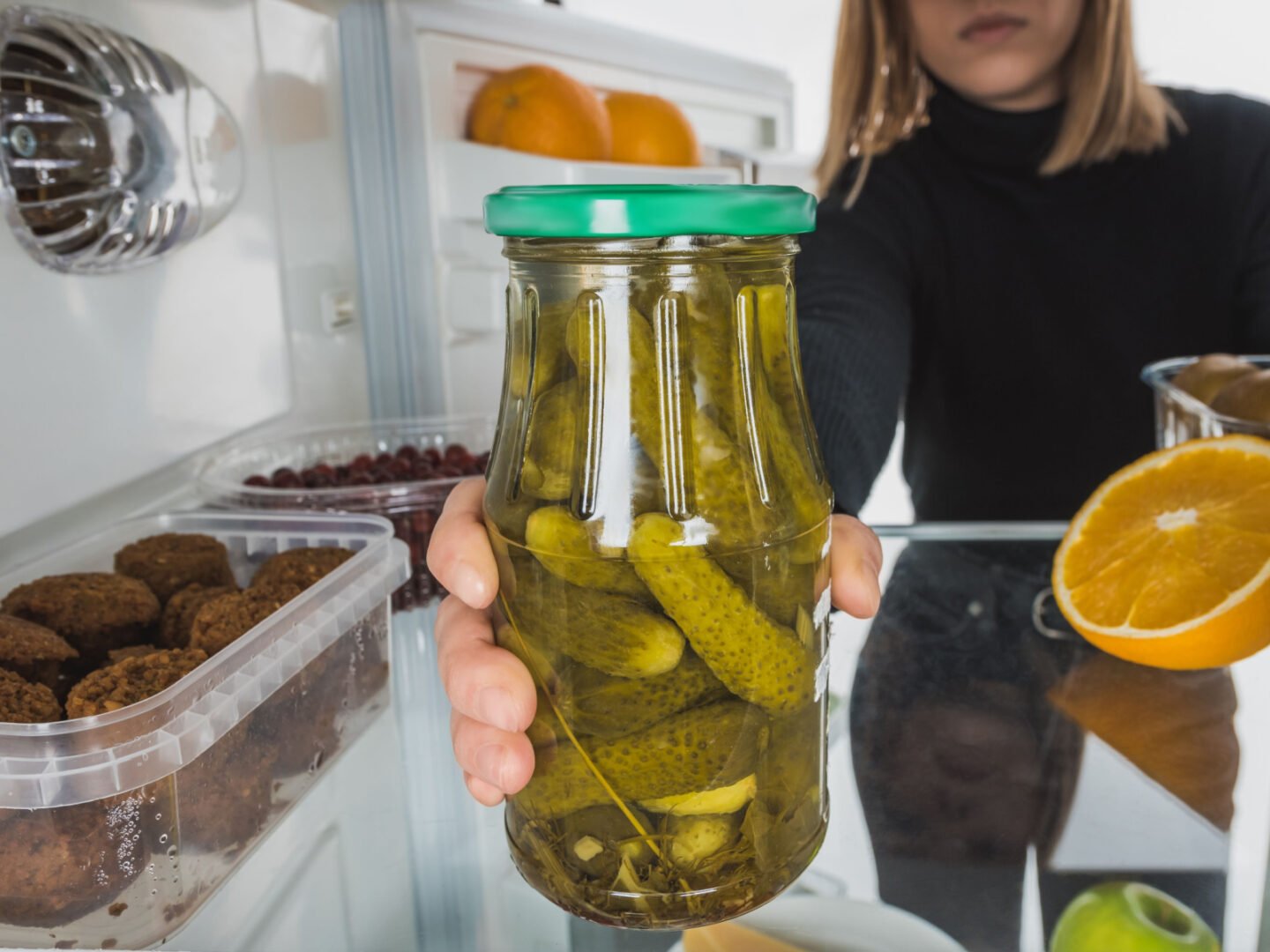
Although the salt, vinegar, and other ingredients in the pickling brine also help to keep the pickles safe, microorganisms that cause spoilage multiply at room temperature, making refrigeration necessary to prolong the shelf life of any food.
You can also freeze your pickles to keep them fresh longer, but putting them in the fridge is enough to keep them good for up to three months after they have been opened.
How Long Do Pickles Last in the Fridge?
You can expect your pickles to last 3 to 6 months in the fridge after opening them. On the other hand, unopened pickles last for over two years in the refrigerator. Pickles last a long time in the fridge, depending on the type of pickles you make and the process used to make them.
If the pickles contain vinegar, they can last a couple more months in the refrigerator. The vinegar acts as a preservative, which helps the pickles last a bit longer. If the jarred pickles only contained salt brine, the shelf life of the pickles would be shorter.
Note that the way you store your pickles also affects their shelf life. When storing pickles, always keep them in an airtight container and keep the lid on. Doing this will reduce the air that comes into the pickle jar, which causes your pickles to have a shorter shelf life.
Consumers should also remember that there are two types of pickles available on the market: pasteurized and unpasteurized. Pasteurized pickles usually have a shorter life span than unpasteurized ones as heat cooks the vegetables, which causes them to spoil quicker.
How Long Do Pickles Last in the Pantry?
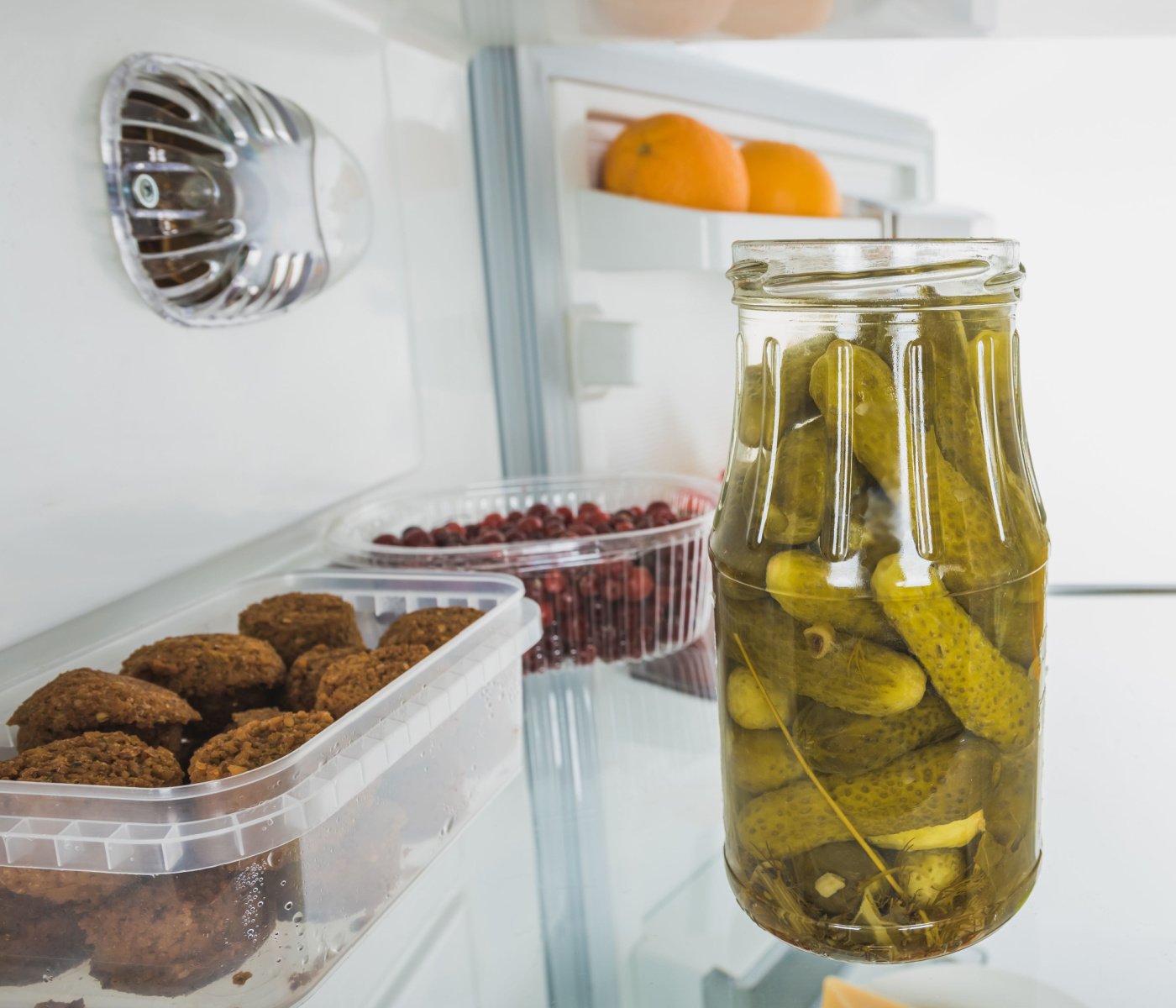
Opened, unrefrigerated pickles will last about 1 to 3 months, while unopened ones will last up to 2 years, or as indicated in the packaging.
If you don't have a fridge for your jarred pickles, it is essential to store them in an airtight container and keep them away from direct sunlight. Moreover, if you're making homemade pickles, sanitize the jar before using it.
What Causes Pickles to Spoil?
Bacterial Contamination
Bacterial contamination is the leading cause of pickle spoilage. Bacteria can come from the water used to make the brine or from the cucumbers themselves. Unsanitary processing can also contribute to bacterial contamination.
To avoid bacterial contamination when making pickles, use clean and sanitized equipment. Before pickling, you should also wash and inspect the cucumbers for any signs of spoilage or decay. Additionally, use clean, filtered, or distilled water for the brine.
Air Exposure
Air exposure causes pickles to spoil by allowing oxygen to come into contact with the cucumber, which causes it to go rancid and become too soft and mushy. This process is called oxidation and is caused by the natural enzymes in the cucumber reacting with oxygen.
To avoid air exposure that causes pickles to spoil, you should always store pickles in an airtight container and only take out what you need.
Temperature
Temperature is also a significant contributing factor to pickle spoilage. When exposed to warm temperatures, the bacteria that cause spoilage, such as mold and yeast, grow more rapidly and cause the pickles to spoil.
Storing them in a cool, dry place is vital to avoid pickle spoilage due to temperature. Refrigeration is the best way to ensure pickles stay fresh and do not spoil.
Poor Canning Practices
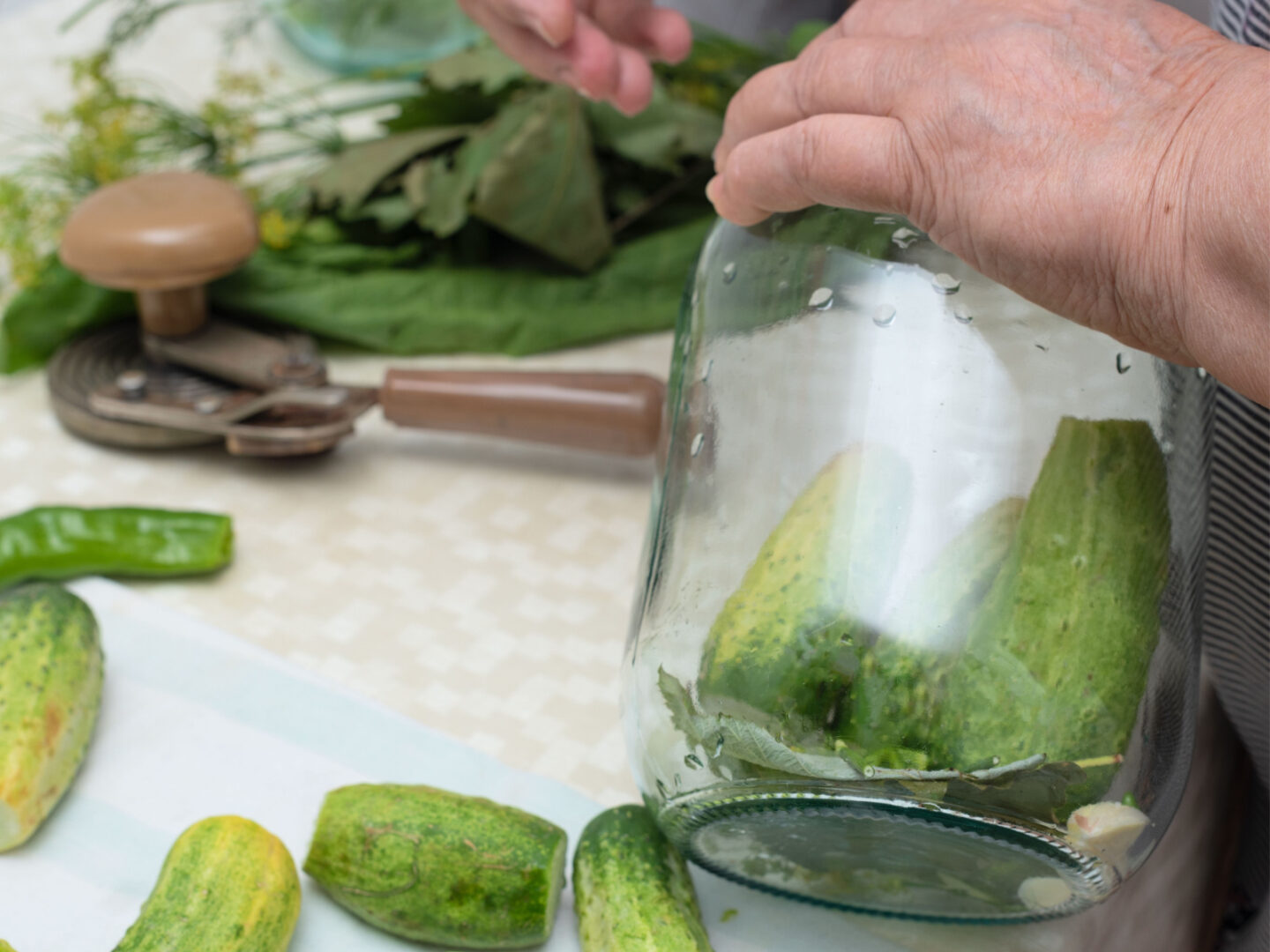
Improper sterilization of canning jars or lids or failure to remove air bubbles from the jar can cause contamination. When air bubbles get trapped in the jar, the acidity and air create a breeding ground for bacteria and fungi.
Moreover, if you don't process the pickles in brine for long enough or the water bath is not hot enough, the pickles may not reach a temperature high enough to kill off any bacteria or fungi present.
Top 3 Tips To Extend Pickles Shelf Life
1. Keep pickles refrigerated or frozen.
Keeping your pickles in the fridge or freezer is the best way to extend their shelf life. Storing them in the refrigerator will prevent sunlight from causing chemical reactions and preserve your pickles' taste.
However, note that you should expect a change in texture after thawing frozen pickles. Freezing will preserve your pickles, but it tends to soften the pickled vegetables.
2. Buy pickles preserved in vinegar.
Vinegar helps pickles last longer because it is acidic and can stop bacteria from growing. Vinegar can also help to give the pickles a more intense flavor, making them even more enjoyable.
3. Keep the lid on.
Keeping the lid on at all times helps you prevent bacterial contamination. This also prevents air exposure, which also causes spoilage.
How To Know If Pickles Have Gone Bad
Smell
A surefire way to tell if your pickles have gone bad is to sniff them. If they have a sour, off-putting odor, they have likely gone bad.
Texture
Sour pickles will have a soft, slimy texture. The cucumbers will feel a bit mushy, and the brine will be cloudy or discolored.
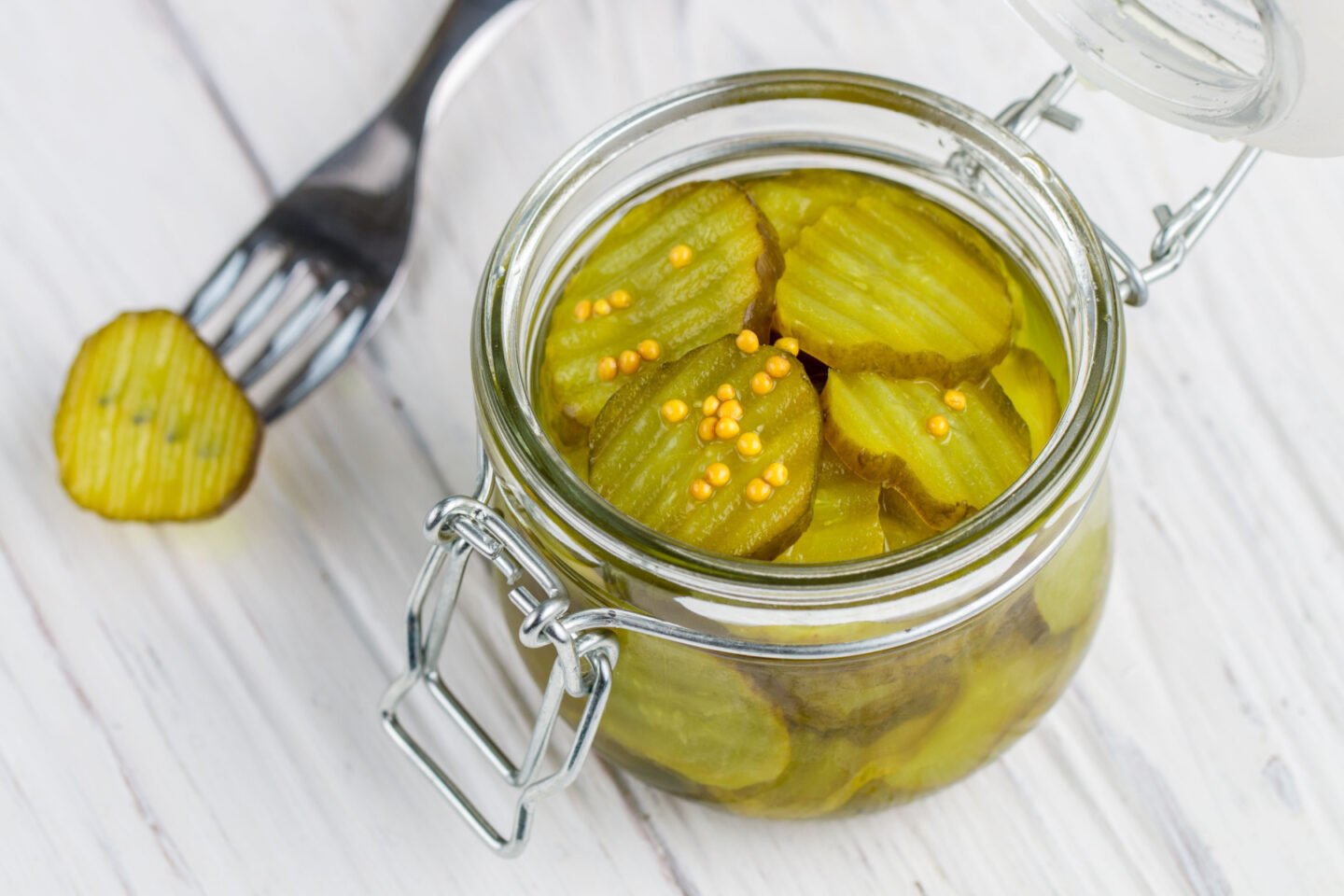
Mold
Mold is a clear sign that your pickles have gone bad. If you spot any white, green, or black fuzz on the surface of your pickles, then discard them immediately.
Color
Pickles that are past their prime will have an unappetizing, yellowish hue. If your pickles differ from their usual bright green color, they have likely gone bad.
You should also watch out for color changes in the pickle juice. If the pickle juice starts to get cloudy and yellowish, that should tell you that it has gone bad, especially if it doesn't smell fresh anymore.
Taste
The final test of whether or not your pickles have gone wrong is to give them a taste. If the flavor seems off, then it's time to toss them.
Recipe
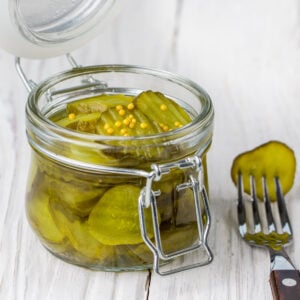
Foolproof Homemade Pickles Recipe
Ingredients
- 4 large fresh cucumbers thinly sliced
- ½ cup white vinegar or apple cider vinegar
- ½ cup water
- 2 tbsp sugar
- 1 tbsp pickling salt or table salt
- 2 cloves garlic minced
- 1 tsp dill
- 1 tsp black peppercorns
- ¼ tsp red pepper flake
Instructions
- Place the cucumber slices in a non-metallic bowl.
- Mix the vinegar, water, sugar, salt, garlic, dill, peppercorns, and red pepper flake in a separate bowl. You can also add any pickling spice you have at home.
- Pour the mixture over the cucumbers and stir to combine.
- Cover the bowl with plastic wrap and place it in the refrigerator for at least 1 hour.
- After one hour, transfer the cucumbers and pickling brine to a mason jar with a lid and store it in the refrigerator.
- The pickles will last up to 6 months in the refrigerator.
Nutrition
Related Questions
Yes, unrefrigerated pickles will last up to 3 months in the pantry. However, this changes depending on the storage and temperature.
Yes. You can leave pickles open overnight, which will still be suitable for consumption. However, do check for any signs of spoilage before eating them.

Leave a Reply